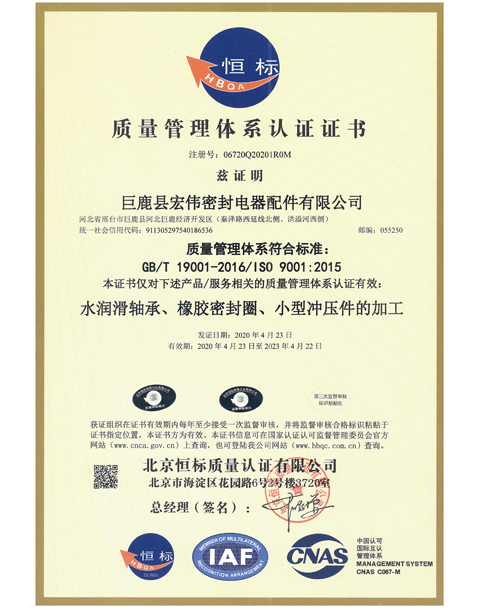Understanding the Role of Oil Retainers in Effective Sealing Solutions
The Importance of Oil Retainers in Modern Machinery
In the world of machinery, efficiency and reliability are paramount. One often-overlooked component that plays a crucial role in enhancing these factors is the oil retainer. While it may seem like a minor part, the oil retainer significantly impacts the performance, longevity, and maintenance of various mechanical systems. This article will explore the importance of oil retainers, their functionality, and the implications of neglecting this essential component.
Understanding Oil Retainers
Oil retainers, commonly known as oil seals or oil gaskets, are devices designed to prevent lubricants from leaking out of machinery while keeping dirt, dust, and contaminants from entering the system. They are typically made from rubber, silicone, or other resilient materials that can withstand temperature fluctuations and chemical exposure. These seals are essential components in various applications, from automotive engines and transmissions to industrial machinery.
The Functionality of Oil Retainers
The primary function of an oil retainer is to maintain the integrity of lubricating oils within a machine. When machinery operates, it generates heat and friction, which can lead to the degradation of oil over time. The oil retains its viscosity and lubricating properties as long as it remains in a sealed environment. The oil retainer’s ability to create a tight seal prevents oil leaks and minimizes contamination from external sources.
Proper functioning of an oil retainer ensures that the machinery operates smoothly, reducing wear and tear on critical components. This efficiency is particularly vital in high-performance or high-stress environments, where even minor oil leaks can lead to significant operational failures.
Implications of Neglecting Oil Retainers
Neglecting the maintenance or replacement of oil retainers can result in several negative consequences. One of the most immediate issues is oil leakage, which can lead to decreased lubrication and increased friction between moving parts. This can cause overheating, accelerated wear, and even catastrophic failure of engine components or machinery.
Additionally, when contaminants are allowed to enter the system due to a faulty or worn-out oil retainer, they can cause extensive damage. Dust and dirt can create abrasive wear on metal surfaces, leading to premature failure of bearings, gears, and other intricate parts. In industrial applications, this could result in costly downtimes and require expensive repairs or replacements.
oil retainer

Furthermore, leaks from oil retainers can pose environmental hazards
. In automotive applications, leaked oil can pollute soil and waterways, leading to potential legal and regulatory issues for businesses that fail to maintain their machinery properly. From an economic perspective, these leaks can also lead to increased costs due to the need for more frequent oil changes and other maintenance tasks.Best Practices for Oil Retainer Maintenance
To ensure the longevity and efficiency of machinery, regular inspection and maintenance of oil retainers should be part of a proactive approach to equipment care. Here are some best practices
1. Regular Inspections Schedule routine inspections to check for signs of wear, cracks, or deformation in oil retainers. Early detection can prevent major failures down the line.
2. Replace Worn Parts If an oil retainer shows signs of wear or damage, replace it immediately. Maintenance crews should always keep the appropriate replacement parts on hand.
3. Proper Installation Ensure that oil retainers are installed correctly. Poor installation can lead to improper sealing and increased chances of leaks.
4. Use High-Quality Materials When replacing oil retainers, opt for high-quality materials that can withstand the specific operating conditions of the machinery.
5. Environmental Considerations Dispose of any leaked oil and worn-out retainers responsibly to mitigate environmental impact.
Conclusion
In conclusion, oil retainers are more than just simple components; they are vital for maintaining the performance and reliability of various machines. By understanding their importance, routinely inspecting them, and adhering to best maintenance practices, operators can enhance machinery efficiency, extend service life, and protect the environment. Investing in the upkeep of oil retainers ultimately leads to smoother operations and reduces the likelihood of costly breakdowns, safeguarding workflows and profitability in both industrial and automotive sectors.
-
Simplifying Oil Changes: A Comprehensive Guide to Oil Drain Plugs and Their Variants
News Aug.04,2025
-
Mastering Oil Drain Maintenance: Solutions for Stripped, Worn, and Upgraded Oil Plugs
News Aug.04,2025
-
Fixing Oil Pan Plug Issues: Leaks, Stripped Nuts, and the Right Replacement Solutions
News Aug.04,2025
-
Everything You Need to Know About Oil Drain Plugs: Sizes, Fixes, and Upgrades
News Aug.04,2025
-
Choosing the Right Oil Drain Plug: A Guide to Sizes, Materials, and Drain Innovations
News Aug.04,2025
-
A Complete Guide to Automotive Drain Plugs: Types, Problems, and Innovative Solutions
News Aug.04,2025
-
The Ultimate Guide to Car Repair Kits: Tools and Essentials Every Driver Should Own
News Aug.01,2025
Products categories















